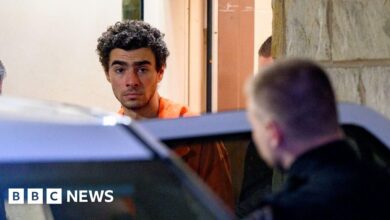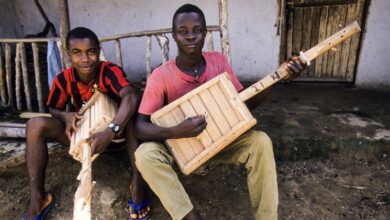Residents of Ghouta in Syria want a reinvestigation of the chemical attack
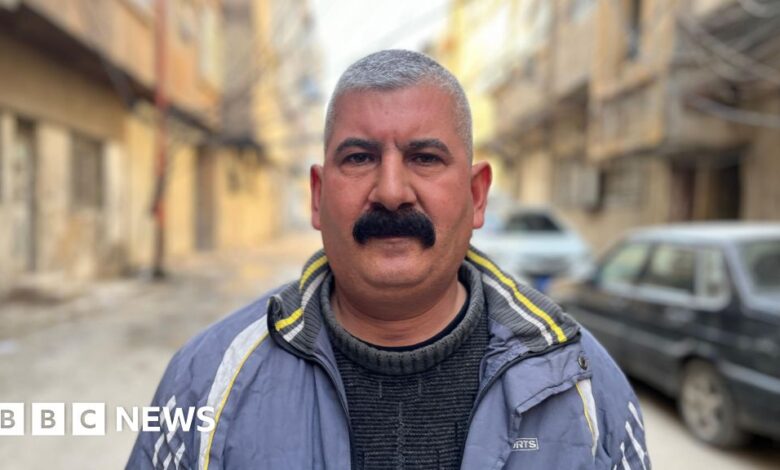
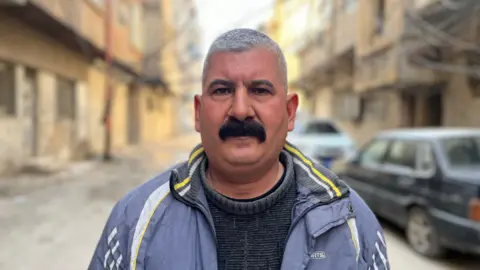 Aamir Peerzada/BBC
Aamir Peerzada/BBCTawfiq Diam was emotional because this was the first time he could freely talk about what happened to his family in 2018, in Douma, the Eastern Ghouta suburb of Damascus.
“If I had spoken before, Bashar al-Assad’s forces would have cut out my tongue. They would have cut my throat. We were not allowed to talk about it,” he said.
Tawfiq’s wife and his four children aged 8 to 12 – Joudy, Mohammed, Ali and Qamar – were killed in a chemical attack on April 7, 2018.
The Organization for the Prohibition of Chemical Weapons (OPCW), a global watchdog, said in a report last year that it believed a Syrian air force helicopter departed from the air base. Dumayr was nearby shortly after 7pm that day and released two yellow cylinders. hit two apartment buildings, releasing high concentrations of chlorine gas.
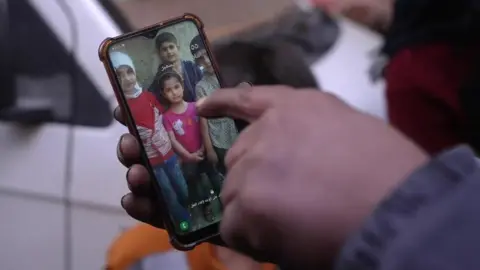
Tawfiq said his family was right outside the house on the ground floor when the bomb fell.
“I heard an explosion and people screaming on the street ‘chemical, chemical’. I ran out. There was a foul smell. I saw yellow foam in people’s mouths. My children couldn’t breathe, they were suffocating.” . I saw people lying on the road,” he said.
OPCW said at least 43 people were killed. Tawfiq said more than 100 people died.
“Even I almost died. I had to stay in the hospital for 10 days. Only five or six men in this compound survived,” he said.
The Assad government denies ever using chemical weapons. And its ally Russia said the attack in Douma was “staged”.
Eastern Ghouta is one of the most fiercely contested areas in the five long years of Syria’s civil war.
The regime eventually surrounded the area and, along with its ally Russia, bombed it indiscriminately as it sought to wrest control from rebel fighters led by the Jaish al-Islam group. .
Driving through it now, the devastation caused to it is all around us. It is difficult to find a building that does not bear the scars of war, many buildings were heavily bombed, they are just shells of structures.
More than once in Eastern Ghouta, chemical weapons – banned under the Geneva Protocol and the Chemical Weapons Convention – were used to attack Douma.
Bashar al-Assad’s forces captured Douma shortly after the chlorine gas attack, and the stories of the victims have never been fully heard.
“Not a day goes by that I don’t think about my children,” Tawfiq said, pulling out the only photo of them, his eyes filled with tears.
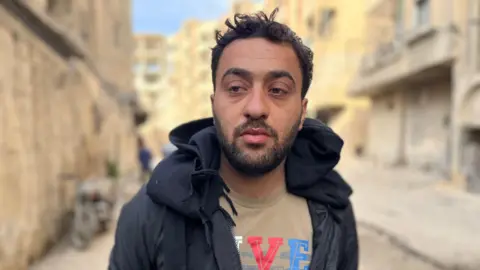 Aamir Peerzada/BBC
Aamir Peerzada/BBCWhen we spoke with Tawfiq, many people came to us to tell their stories.
Khalid Naseer said his baby daughter Nour, two-year-old son Omar and his pregnant wife Fatima also died in the 2018 chlorine attack.
“The dead were mainly children and women.”
The anger he had been suppressing for six years had now burst out.
“The whole world knows Bashar al-Assad is an oppressor and a liar, and he killed his own people. My wife was killed two days before she gave birth to our child,” he shouted , emotions surged.
The chlorine gas attack was not the only time chemical weapons were used in the region.
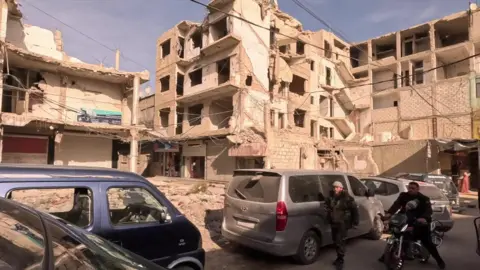
In 2013, rockets containing the nerve agent sarin were fired into several rebel-held suburbs in Eastern and Western Ghouta, killing hundreds of people. UN experts confirmed the use of sarin but they were not asked to assign blame.
Assad denied his forces fired missiles, but he agreed to sign the Chemical Weapons Convention and destroy Syria’s declared chemical weapons stockpile.
From 2013 to 2018, Human Rights Watch documented at least 85 chemical weapons attacks in Syria, accusing the Syrian government of being responsible for the majority of them.
In addition to Douma in 2018, the OPCW Investigation and Identification Team identified the Syrian military as the perpetrators of four other cases of chemical weapons use in 2017 and 2018. A previous fact-finding mission, It is not required to identify the culprit, which has been discovered. Chemical weapons were used in 20 cases.
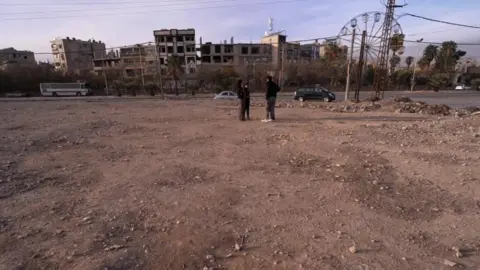
Khalid and Tawfiq took us to a roadside mound, a short drive away. They believe this is where the regime took their family’s bodies and buried them in a mass grave.
Looking down at the ground, among the gravel, mud and rocks, fragments of bones could be seen, although it was impossible to tell if they were human remains.
“This is my first time coming here, I swear to God. If I tried to get here sooner, they would [the regime] will execute me,” Tawfiq said.
“On Eid, when I miss my family, I will ride on this side of the road and take a quick glance this way [the mound]. It makes me cry.”
Tawfiq wants the graves dug up so he can hold a dignified funeral for his family.
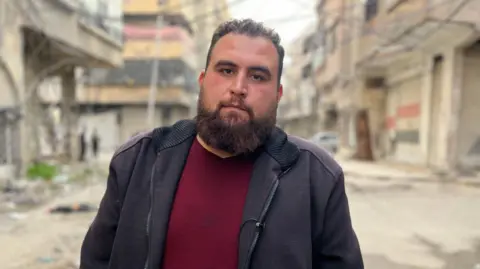 Aamir Peerzada/BBC
Aamir Peerzada/BBC“We want fresh investigations into the attack,” Khalid said. He said that the testimony that many people gave to the OPCW fact-finding mission in 2019 was unreliable.
That is a claim corroborated by Abdul Rahman Hijazi, one of the witnesses who testified before the delegation, who said he was forced to give the regime’s version of events.
“Intelligence arrested me and told me to lie. They told me that people died from inhaling dust, not from chemicals. They threatened me that if I did not agree, my family would not be safe. They told me that the House was surrounded by regime people,” he said.
One of the findings of the 2019 OPCW report on Douma said: “Several witnesses reported that many people died in hospital on April 7 from heavy shelling and/or asphyxiation from inhalation.” smoke and dust.”
Abdul Rahman said he and his family were shunned by the community for years after he gave his testimony. He finds it difficult to get a job.
Now he also wants a new investigation.
“I want the truth to come out. I can’t sleep. I want justice for every parent.”
Additional reporting by Aamir Peerzada, Sanjay Ganguly and Leen Al Saadi



